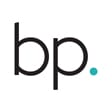The Art of Audience-Centric Business Planning
It was just another day in 2016, the kind that begins without any hint that it’s about to offer you a memorable conversation or the beginning of a lifelong friendship. That day, as I headed out for lunch, I bumped into Pat, a fellow entrepreneurial spirit whose journey had taken him deep into the startup world as a product manager and co-founder for a medical credentialing application. Our initial chit-chat, as you might expect between two guys in the tech and business scene, quickly veered into what we did for a living.
“I help entrepreneurs shape their ideas into business plans,” I answered, expecting a polite nod or perhaps a query about my approach. But Pat’s reply was neither.
“Oh, interesting,” he said, with a grin that suggested an opinion on my career choice was about to be given. “You know, we’ve never really had a business plan. Made it through three rounds of financing without one.”
His statement piqued my interest, not because it was revolutionary—I’d heard this several times—but because it underscored a common misconception. “And what did your investors ask for?” I probed knowingly.
“Well, we had a pitch deck, of course. But depending on the round, they wanted different things. The seed round was all about our burn rate and product roadmap. For Series A, they wanted the full monty — go-to-market strategy, bios on the founders, our marketing plan, and the financials.”
I couldn’t help but chuckle at the irony. “Sounds to me like you did have a business plan, just in pieces.”
Pat laughed, the realization hitting him. “Guess you’re right.”
And there it was — the crux of our unexpected sidewalk conversation. Pat, in his role, and his team had masterfully pieced together exactly what his startup needed, a bespoke “business plan” that, while unconventional, was perfectly suited to his audience. Pat hadn’t set out to change the world or even to challenge traditional views on business planning. Instead, he focused on what the gatekeepers wanted to see—a reminder that knowing your audience and what they seek is as crucial as the plan itself.
The Evolution of Business Planning
The business plan, with its detailed projections, market analyses, and strategy outlines, has long been the cornerstone of entrepreneurial advice. Historically, it served as a blueprint for the business, a tool for securing funding, and a roadmap for growth. Yet, the story of Pat’s startup journey hints at a paradigm shift. In the fast-paced and ever-evolving startup ecosystem, the traditional, comprehensive business plan may no longer be the holy grail of preparation and presentation for entrepreneurs, depending on their stage and audience.
The Pitch Deck Phenomenon: A Double-Edged Sword
Enter the pitch deck: a sleek, compelling presentation designed to distill the essence of a business into a handful of impactful slides. Recently, it has soared in popularity, often overshadowing the traditional business plan in the eyes of startups and investors alike. The charm of the pitch deck lies in its succinctness and its power to transform complex business concepts into accessible, engaging points. It zeroes in on the vital components of the business—such as the problem, solution, market size, product, team, and financials—setting the stage for more in-depth discussions.
This streamlined approach meshes well with the modern investor’s preference for quick yet comprehensive insights, catering to their limited time and the vast array of proposals they encounter. However, this is where the pitch deck’s allure can become a pitfall. While it serves as an excellent tool for capturing initial interest, its brevity might not prepare entrepreneurs for the rigorous scrutiny that follows. The pitch deck, at its core, is a highlight reel; it’s the enticing cover of the book, not the detailed chapters within.
The true value of the entrepreneurial journey lies in the depths of planning — whether through a traditional business plan or, like Pat, an assemblage of focused, strategic components. This process is about more than just compiling data; it’s an exercise in thorough understanding and preparation. When you dive deep into planning, you’re not just preparing to present; you’re gearing up to defend your vision, to answer the tough, probing questions that invariably arise in investor meetings. These are the moments when the substance behind your pitch deck is tested. Without the rigorous groundwork, an entrepreneur might find themselves floundering, their pitch unraveling at the seams.
Thus, while the pitch deck is an indispensable tool in the modern fundraising arsenal, it should not be the entrepreneur’s starting point. It’s the polished surface of a much deeper strategic foundation.
Navigating Audience Expectations
Understanding the Landscape
At the heart of effective business planning is a nuanced understanding of your audience. Different stakeholders — banks, investors, USCIS officials, landlords, or state authorities — each have distinct expectations. Recognizing and adapting to these expectations is not just beneficial; it’s essential for the success of your venture. This dual-purpose approach, balancing introspection with external communication, forms the cornerstone of strategic business planning.
Strategies for Audience-Centric Planning
- Direct Engagement: The most effective way to understand what different audiences require from your business plan is to ask them directly. This proactive approach not only provides you with accurate insights but also starts building a relationship based on transparency and mutual respect. It showcases your willingness to be coachable and to prioritize aspects that matter most to your stakeholders.
- Adopting a Modular Approach: The diverse needs of your audience demand a flexible approach to business planning. Our resources on Businessplan.com are structured around Model-Based Planning®, Market Analysis, Narrative Development, Organizational Structure, Financial Projections, Strategy & Implementation, and Pitch Deck. This modular setup allows you to dive deep into the segments most relevant to your current situation, ensuring you’re prepared with a comprehensive, yet targeted, presentation.
Practical Applications Across Different Audiences
- Banks and SBA Loans: Emphasize detailed planning, comprehensive research, and a clear demonstration of your understanding of the business. Banks and SBA lenders prefer evidence of thorough preparation, realistic financial projections, and a deep understanding of your market and operational challenges.
- Investors: Focus on showcasing the potential for significant ROI, the scalability of your solution, and the strength of your team. Investors are looking for clarity on the problem you’re solving, your competitive advantage, and detailed financial projections that highlight growth potential.
- USCIS: For visa applications, it’s crucial to tailor your business plan to meet specific visa category requirements, demonstrating compliance with investment amounts, job creation, or the business’s viability and potential to contribute significantly to the U.S. market.
- Landlords: A concise, well-thought-out plan showcasing financial viability, startup costs, and the potential benefit to the property can significantly enhance your chances of securing a lease.
- State or Municipal Licensing, Certification, or Accreditation: Ensure your plan addresses specific regulatory requirements, including detailed operational plans that comply with relevant standards and regulations.
Embracing a tailored, audience-centric approach in your business planning is more than a strategy—it’s a necessity in today’s complex business environment. By directly engaging with your audience and utilizing a modular planning approach, you can create a dynamic, flexible plan that speaks directly to the needs and concerns of your stakeholders. This not only increases your chances of success but also demonstrates your commitment to creating a well-thought-out, viable venture.
We’re eager to hear how a tailored approach to understanding and meeting audience expectations has shaped your business planning journey. Share your experiences and insights on how adapting your strategy has opened doors, built relationships, and propelled your venture forward. Join the conversation on X or LinkedIn and let’s learn from each other’s successes and challenges.




